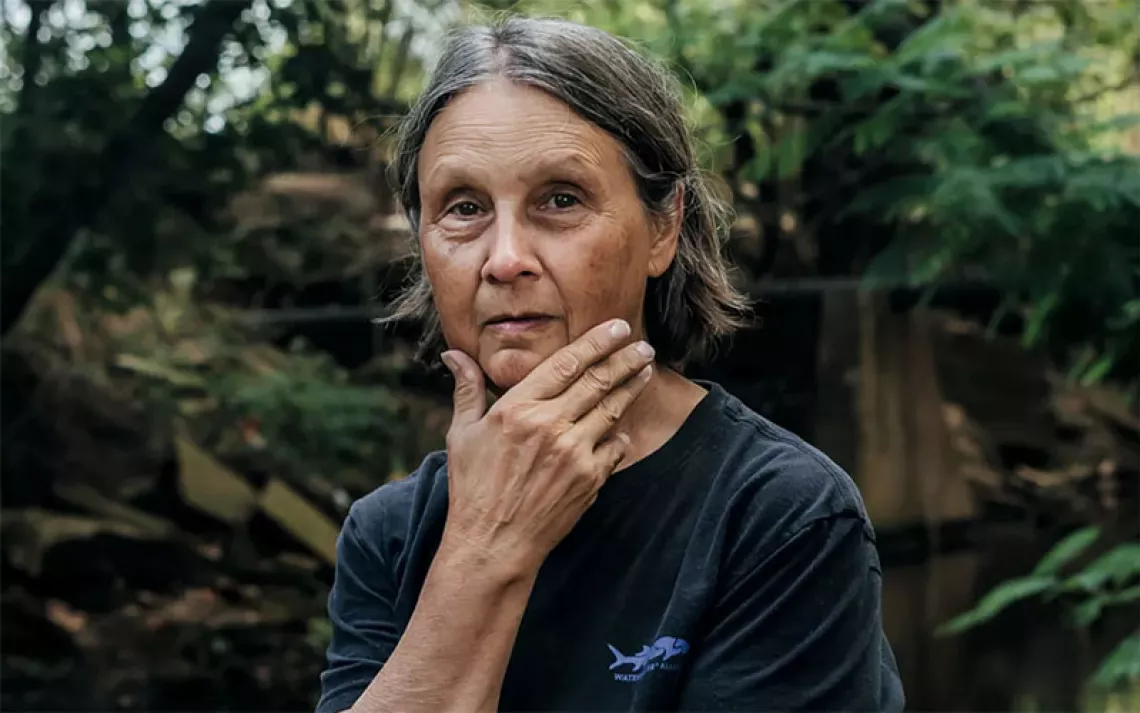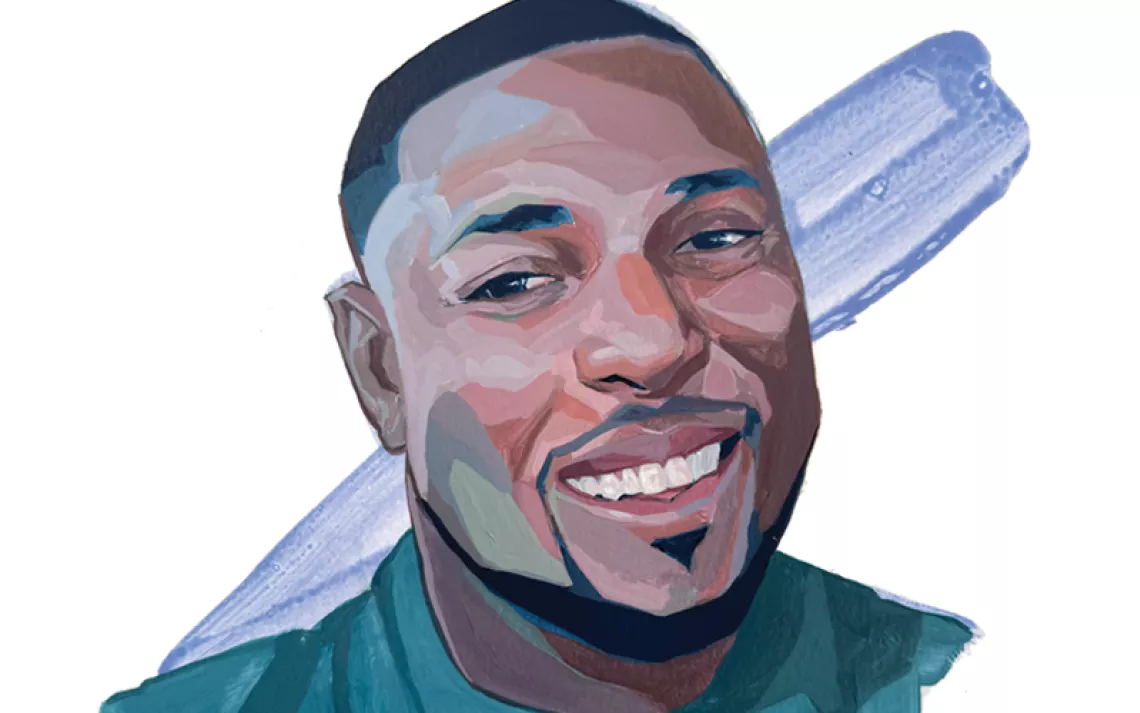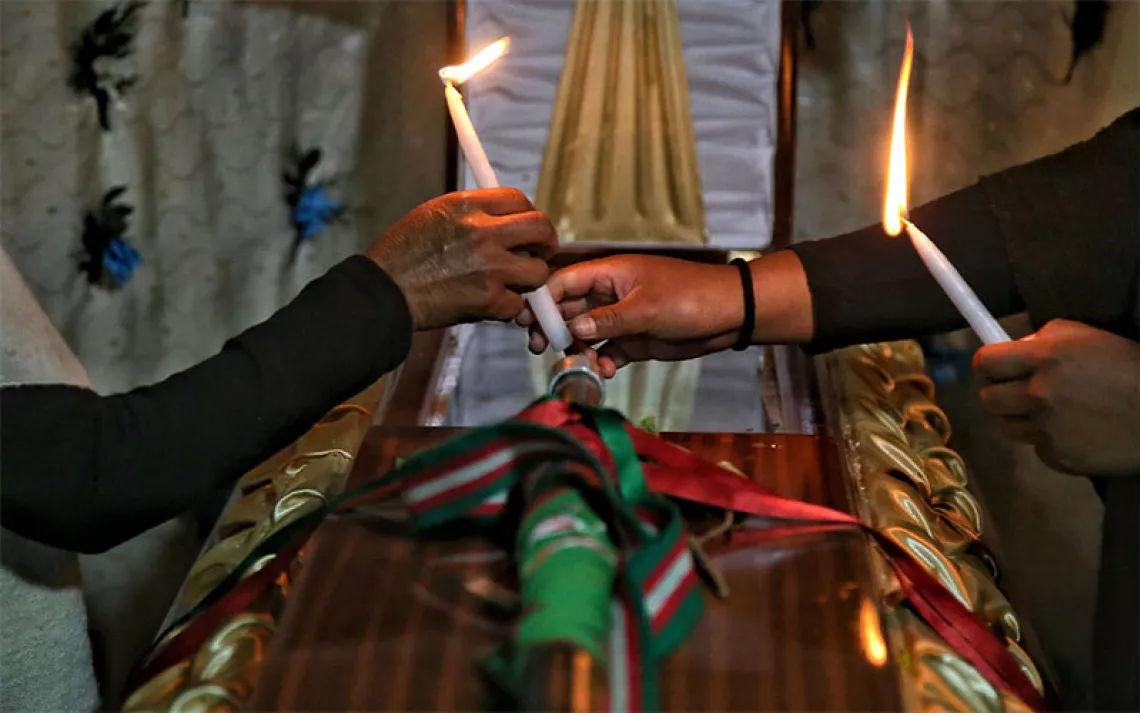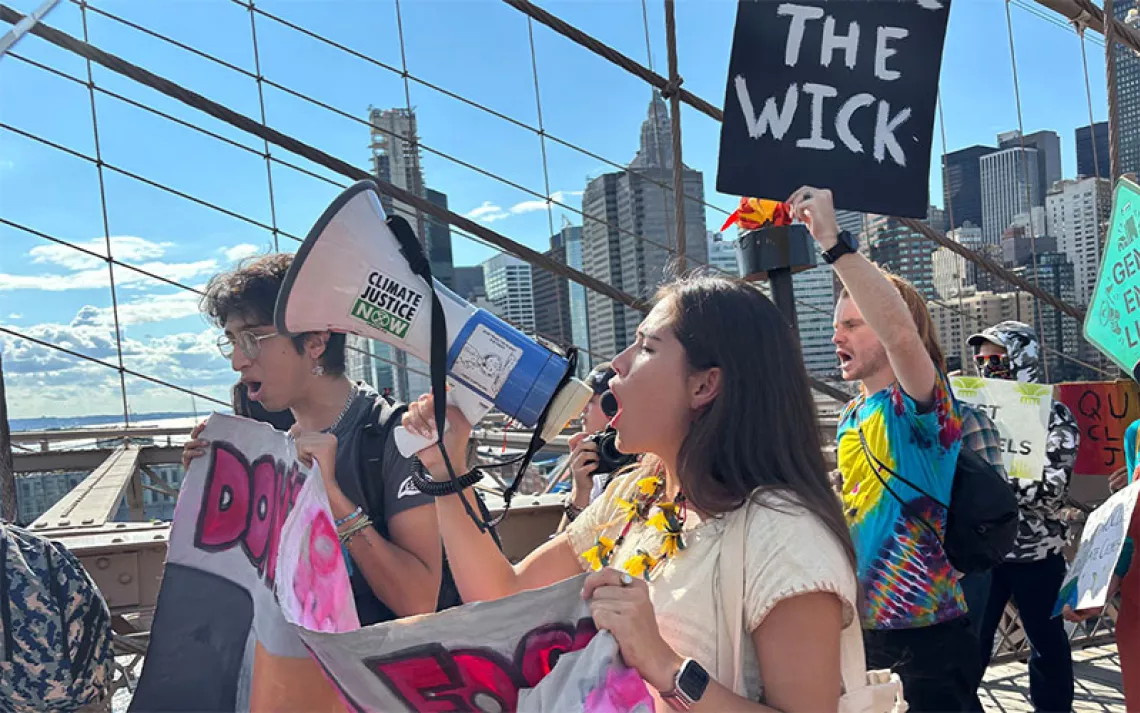Explore, Enjoy, and Listen
Stories help connect us to the issues we care about, and to each other

Sierra Club Executive Director Michael Brune. | Photo by Josh Deware
I can't say for certain that humans are the only storytellers on the planet (not long ago, scientists believed incorrectly that we had a monopoly on using tools). I am sure, however, that storytelling is an essential aspect of our humanity. As such, it can be a powerful tool for social change: If you want to change someone's mind, give them facts. If you want to change someone's heart, tell them a story.
John Muir wasn't invited to be the president of the newly formed Sierra Club because he knew the most about wild places (he didn't) or because he passionately loved mountains (he did). Muir's accounts of being in wilderness—from his harrowing tale of riding out a thunderstorm in the upper reaches of a giant fir to his lyrical tribute to the water ouzel—changed how many people saw nature, from something fearsome to be conquered to something wondrous to be cherished.
Muir famously believed that taking people to wild places would motivate them to protect those places. But the journey doesn't have to be literal. In 1892, at the second-ever gathering of Sierra Club members, explorer John Wesley Powell told the story of his expedition through the Grand Canyon. Visit bit.ly/sc-bulletins to take a look at some early volumes of the Sierra Club Bulletin, which eventually evolved into this magazine; you'll find them filled with firsthand stories about exploring and enjoying wilderness. These stories did as much as anything to create community among the early advocates for wilderness.

The importance of stories never changes, but how we tell them does. In the 1960s, for instance, the Sierra Club's first executive director, David Brower, collaborated with photographers such as Ansel Adams and Eliot Porter to publish then-revolutionary "exhibit format" books—an early incarnation of what we now know as coffee-table books. The first of these, This Is the American Earth, was sent to every member of Congress and may have been a factor in the passage of the Wilderness Act just a few years later.
Even in this age of social media and shrinking attention spans, people still respond to a gripping story. But to effect change, we can't just be good at telling stories—we have to be good at listening too. Protecting the environment is a goal shared by a multitude of communities and allies. We can help by listening to others' stories, then sharing and amplifying them.
Some of my favorite stories in the Sierra Club's new podcast, The Overstory (download it at sc.org/overstory), are the ones where we hear directly from the people affected by and fighting against environmental injustice, whether those voices come from the Arctic tundra or the Appalachian hills. In episode 4, for example, John and Ruby Laury describe the fight to protect their home in Buckingham County, Virginia, from a gas-fired compressor station planned for the Atlantic Coast pipeline. Hearing the determination in their voices, you can't help feeling invested in their struggle. Such compelling stories remind us that behind the issues we care about—from clean energy to toxic waste—are real people with their own hopes, fears, and uncertain futures.
Part of being human is wanting our own story to be heard and understood. Some have a gift for telling those stories in ways that enthrall and persuade others. But every single one of us has the capacity to learn from the stories of others. As we work to change the world, that may well be the single most powerful action we can take. All we have to do is listen.
This article appeared in the July/August 2019 edition with the headline "Explore, Enjoy, and Listen."
Illustration by Jaime Jacob
 The Magazine of The Sierra Club
The Magazine of The Sierra Club



